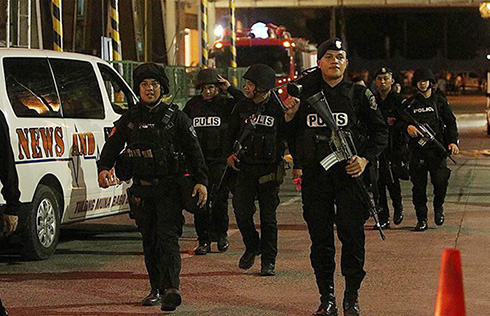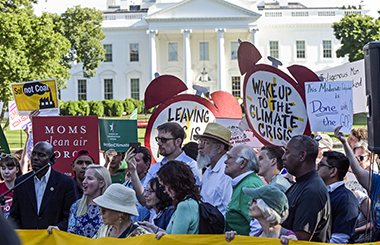Asia-Pacific countries call for concerted efforts to address rising non-traditional threats to security
SINGAPORE - Non-traditional threats to security in the Asia-Pacific region had taken the center stage of the 16th Shangri-La Dialogue which concluded here on Sunday, with participants calling for concerted efforts to address them.
At the three-day dialogue which opened on Friday evening, defense ministers, officials and experts from Asia-Pacific countries shared the same view that terror threat is on the rise and spreading, members of extremist groups are sneaking into the region and large-scale cyber attacks are nothing new.
TERROR THREAT ON RISE AND SPREADING IN ASIA-PACIFIC
As Europe has become a frequent target of terror attacks in recent years, a number of countries in the Asia-Pacific have also fallen victim, including Pakistan, Malaysia, Indonesia, Thailand, the Philippines and Afghanistan.
The car bomb explosion targeting government buildings and foreign embassies in central Kabul on May 31 left at least 90 people dead and 400 others injured.
The deadly attack targeting the convoy of Pakistani Senate's Deputy Chairman Molana Abdul Ghafoor Haideri in southwestern province of Balochistan killed at least 25 and inured 35 others on May 12.
These incidents have underscored the severity of terrorism in the region. It also tells that no country in the region can assume it will be spared from terror attacks.
In a plenary speech at the security forum on Sunday, Singaporean Defense Minister Ng Eng Hen said: "Closer to home, terrorism is our biggest security concern in Southeast Asia" and the threat in the region has heightened, including for Singapore, and is likely to worsen.
MEMBERS FROM EXTREMIST GROUPS SNEAKING INTO ASIA-PACIFIC
Just on the eve of Ramadan, the Islamic State (IS) called for an "all-out war" on the West. Participants at the forum warned that there is potential return of IS fighters from the Middle East as they are losing ground there.
Last week, IS-linked militants in the Philippines attempted to seized part of Marawi city in Mindanao, attacking innocents and killing police and military, and taking worshipers hostage, forcing President Rodrigo Duterte to cut short his visit and return home to handle the crisis. Mindanao is till under martial law.
IS also claimed responsibility for the brutal bombings that killed three police officers at a Jakarta bus station in late May.
US Secretary of Defense James Mattis said Saturday in a plenary session at the forum that violent extremist organizations, fighters returning from the Middle East and local individuals radicalized by malicious ideologies, seek to gain ground in Southeast Asia.
The Singaporean defense minister said: "We know at least 31 terrorists groups in this region have pledged allegiance to IS, and there is evidence of increasing transnational cooperation among regional terror groups."
LARGE-SCALE CYBER ATTACKS NOTHING NEW IN ASIA-PACIFIC
The worldwide ransomware cyber attacks in May hit many countries in Asia-Pacific, with the National University of Singapore and two major hospitals in Indonesia experiencing nightmare.
Media reports said the latest cyber attacks undermined computers of at least two employees of the National University of Singapore (NUS), including a researcher who worked on a security project funded by the Ministry of Defense.
NUS computer science research fellow Prosanta Gope's computer was hacked after he clicked on a link from another colleague whose computer had also been hacked, the reports said.
Fortunately, no signs of data loss were detected.
At least two major hospitals in Indonesia were hit in the attack.
Dharmais Hospital and Harapan Kita Hospital in Jakarta were affected by the "ransomware," said Semuel Pangerapan, a director general at Indonesia's Communication and Information Ministry.
The hospitals canceled all surgeries planned for the day.
"A generation of criminals and terrorists is using a new generation of technology, attempting to divide us by exploiting platforms designed to bring us together," Australian Prime Minister Malcolm Turnbull noted Friday evening in his keynote speech to open the security forum.
To win the war on multi-fronts, defense ministers, officials and experts called for concerted and coordinated efforts to deal with the challenges, including improving security mechanism, sharing intelligence and preventing extremists from entering the region.


























